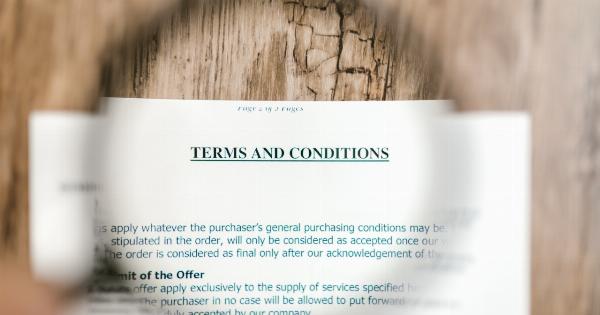Contracts are legally binding agreements that define the terms and stipulations of a specific business deal. Every contract contains provisions that are particular to the matter at hand.
However, certain vital elements are universal and form the skeleton of the said agreement. Contracts may be binding or non-binding, and not all contracts are enforceable by law. The best way to ensure that your contract is legally binding and enforceable is to seek the services of a contract attorney.
1. The Parties Involved
The parties involved section of the contract document will identify each individual or party that is part of the agreement.
This section is usually written at the beginning of the contract document and may include the names, addresses, contact information, and other relevant details of the parties involved. You should review this section to ensure that all parties involved are listed, and their contact and personal details are accurate.
2. Terms and Conditions
This section clearly defines the scope and limitations of the agreement. It establishes the rules that each party must follow and the responsibilities that are expected of them.
The terms and conditions of a contract are arguably the most important section of the agreement and should be carefully reviewed to ensure that they are clear, unambiguous, and reasonable to both parties.
3. Payment Terms
Payment terms refer to the amount of money that is required to be paid, the payment schedule, and other financial details pertaining to the agreement.
Ensure that you are clear about the payment terms and that there is no ambiguity or discrepancies in the amounts and payment schedules.
4. Delivery and Specifications
If the contract deals with goods or service delivery, this section would outline the expectations of each party. It would detail the materials to be used, the scope of work, the timeline of the project, and other relevant details.
It is important to ensure that this section accurately reflects what is expected of both parties in terms of goods and services provided.
5. Termination and Liability
The termination section outlines the conditions under which the contract may be terminated. It also outlines the liabilities that each party will assume in the event of termination.
Ensure that you understand these clauses and that they are fair and reasonable.
6. Confidentiality and Non-Disclosure
This section details the confidentiality obligations that each party must adhere to, especially if the agreement includes sensitive information.
Ensure that the agreement covers the confidential information that may be disclosed during the term of the agreement and specifies the penalties for breach of confidentiality.
7. Indemnification and Insurance
Indemnification clauses outline the liability of each party in the event of damage or loss. Insurance clauses outline the nature, type, and amount of insurance coverage required by each party to cover potential losses.
Ensure that you understand the terms of each party’s indemnification and insurance requirements.
8. Governing Law, Jurisdiction, and Forum Selection
This section outlines the location and jurisdiction that any disputes arising from the agreement must be resolved. It also outlines the laws that will apply to the interpretation and enforcement of the agreement.
Ensure that you have a clear understanding of the governing law, jurisdiction, and forum selection clauses and that they are fair and reasonable.
9. Amendments and Breach
This section outlines the circumstances under which changes to the contract can be made and under what conditions a breach of contract could occur. Ensure that you understand the provisions regarding amendments and breach and that they are reasonable.
10. Signatures
Finally, the contract must be signed and dated by all parties involved. Ensure that you review the signatures of all parties involved to ensure that they are correct and have been executed in accordance with the agreement.
Conclusion
Your contract is an essential tool for protecting your interests and ensuring that your agreement with another party is legally binding.
A well-drafted contract can minimize risks and maximize benefits, so it is important to take the time to review and understand its contents. If you have any concerns about your contract or its provisions, you should seek the advice of a contract attorney.
With these tips, you can ensure that your contract is comprehensive and covers all the necessary elements needed to make it legally binding and enforceable.




























